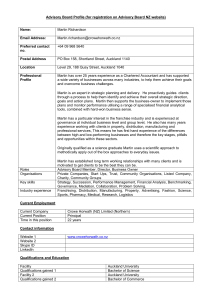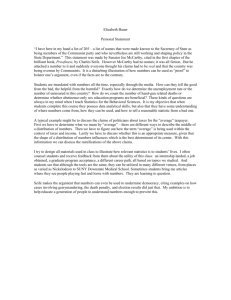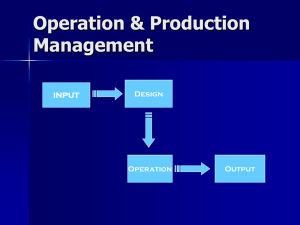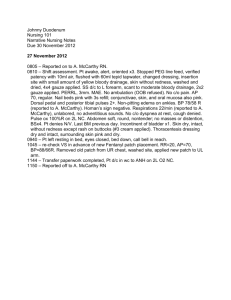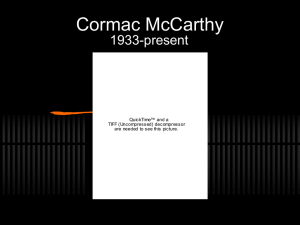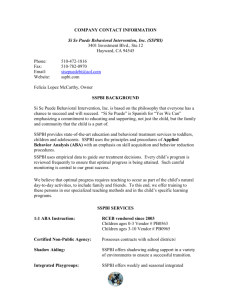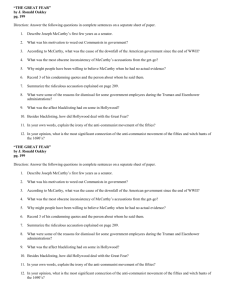mecheng 352
advertisement
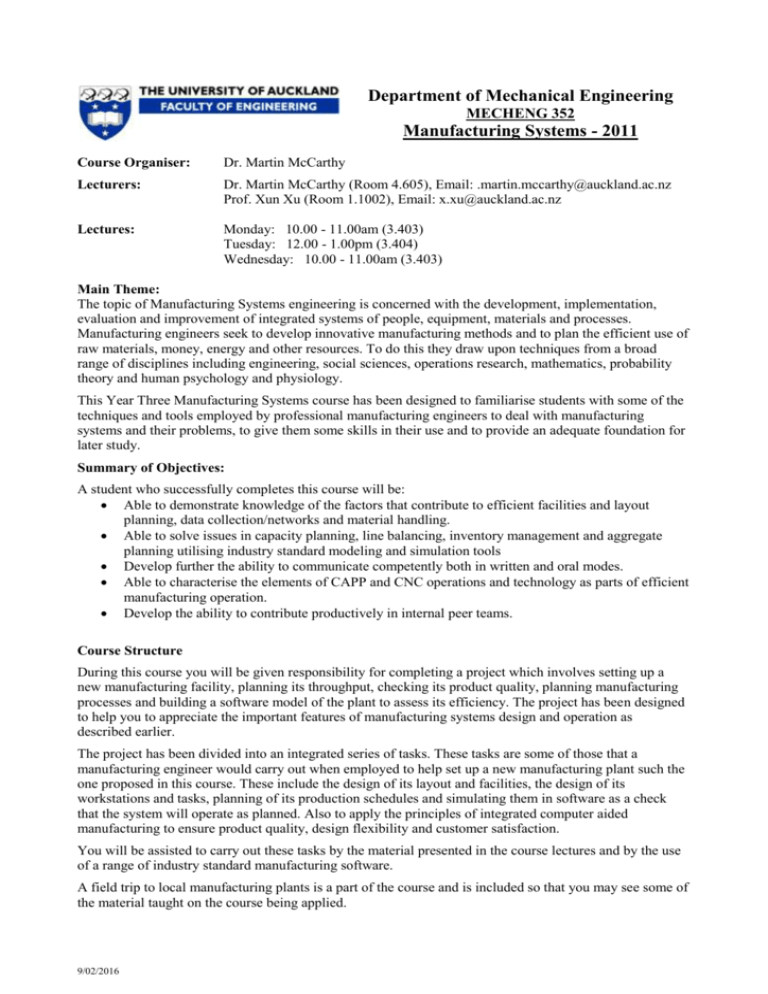
Department of Mechanical Engineering MECHENG 352 Manufacturing Systems - 2011 Course Organiser: Dr. Martin McCarthy Lecturers: Dr. Martin McCarthy (Room 4.605), Email: .martin.mccarthy@auckland.ac.nz Prof. Xun Xu (Room 1.1002), Email: x.xu@auckland.ac.nz Lectures: Monday: 10.00 - 11.00am (3.403) Tuesday: 12.00 - 1.00pm (3.404) Wednesday: 10.00 - 11.00am (3.403) Main Theme: The topic of Manufacturing Systems engineering is concerned with the development, implementation, evaluation and improvement of integrated systems of people, equipment, materials and processes. Manufacturing engineers seek to develop innovative manufacturing methods and to plan the efficient use of raw materials, money, energy and other resources. To do this they draw upon techniques from a broad range of disciplines including engineering, social sciences, operations research, mathematics, probability theory and human psychology and physiology. This Year Three Manufacturing Systems course has been designed to familiarise students with some of the techniques and tools employed by professional manufacturing engineers to deal with manufacturing systems and their problems, to give them some skills in their use and to provide an adequate foundation for later study. Summary of Objectives: A student who successfully completes this course will be: Able to demonstrate knowledge of the factors that contribute to efficient facilities and layout planning, data collection/networks and material handling. Able to solve issues in capacity planning, line balancing, inventory management and aggregate planning utilising industry standard modeling and simulation tools Develop further the ability to communicate competently both in written and oral modes. Able to characterise the elements of CAPP and CNC operations and technology as parts of efficient manufacturing operation. Develop the ability to contribute productively in internal peer teams. Course Structure During this course you will be given responsibility for completing a project which involves setting up a new manufacturing facility, planning its throughput, checking its product quality, planning manufacturing processes and building a software model of the plant to assess its efficiency. The project has been designed to help you to appreciate the important features of manufacturing systems design and operation as described earlier. The project has been divided into an integrated series of tasks. These tasks are some of those that a manufacturing engineer would carry out when employed to help set up a new manufacturing plant such the one proposed in this course. These include the design of its layout and facilities, the design of its workstations and tasks, planning of its production schedules and simulating them in software as a check that the system will operate as planned. Also to apply the principles of integrated computer aided manufacturing to ensure product quality, design flexibility and customer satisfaction. You will be assisted to carry out these tasks by the material presented in the course lectures and by the use of a range of industry standard manufacturing software. A field trip to local manufacturing plants is a part of the course and is included so that you may see some of the material taught on the course being applied. 9/02/2016 Assessment: This consists of two parts, coursework and examination. Coursework (50%) Task 1A, Manufacturing Facility Layout (10%) Task 1B, Ergonomic Analysis (2.5%) Task 2, Facilities Simulation (12.5%) Task 2, CNC Programming a Typical Component (12.5%) Task 3, Finite Recourse Scheduling (12.5%) Examination (50%) Text Book: There is no prescribed text book Recommended Book: Production and operations management (5th edition), Wild R., Cassell, ISBN 0-304-33077-9 9/02/2016

